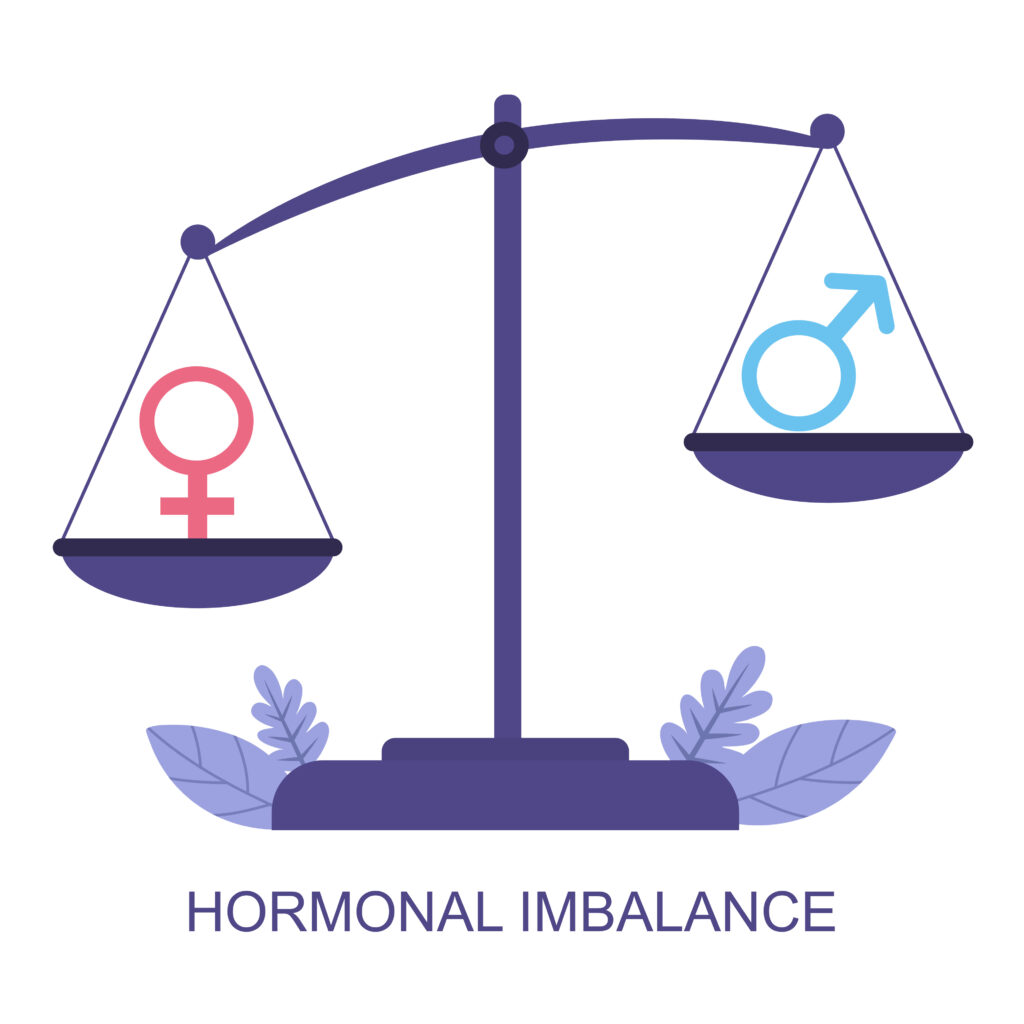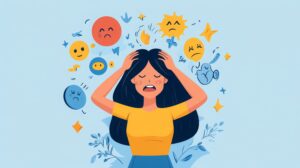I’ve never been so aware in my life of how hormones affect mood than a few years ago when perimenopause hit. The emotional rollercoaster was overwhelming; I cried at everything, from sad movies to silly conversations with interns. I couldn’t find my words, and my focus, already impaired by ADHD, was bad. And the worst part? My hair started falling out! This experience was a stark reminder for me of the powerful impact hormones have on our mental and emotional well-being.
Whether hormones are too high, too low, or even just fluctuating, they play a significant role in our mood. Testosterone, the primary male sex hormone, is a great example of this. While it can be associated with aggression and competitiveness, low levels of testosterone can lead to feelings of depression, fatigue, and irritability. Both men and women produce testosterone, although in different amounts, and its imbalance can affect mood in both sexes. For men, declining testosterone levels with age, known as andropause, can result in mood disturbances and a decrease in overall well-being. Often, both men and women choose to take hormone replacement therapy (HRT) to improve mood, energy and their sense of well-being.
Estrogen and progesterone, the primary female sex hormones, also have profound effects on mood. These hormones fluctuate throughout the menstrual cycle, pregnancy, and menopause, often leading to changes in emotions. For instance, premenstrual syndrome (PMS) and premenstrual dysphoric disorder (PMDD) are linked to the hormonal changes occurring before menstruation, characterized by symptoms such as irritability, depression, and anxiety. During menopause, the decline in estrogen levels can lead to lack of focus, mood challenges, depression, and anxiety, underscoring the hormone’s role in emotional regulation.
As a functional nutrition provider specializing in mental health nutrition, I’m always on the lookout for how hormone challenges may be impacting my clients’ mood and focus. Often, clients will choose to order a DUTCH test, a comprehensive analysis of hormone levels and their metabolites. This test helps us better identify personalized strategies using diet and supplements to modulate hormones. For instance, those struggling with low estrogen can be encouraged to eat phytoestrogen-rich foods and specific supplements. Those with sky high cortisol levels (a stress hormone) can be given evidence-based adaptogenic herbs that can support the stress response. Often, just seeing the test results can help. Suddenly you can see exactly why you have problem periods, or why your energy levels are in the tank.
How do you know if hormones may be playing a role in your mood? First, look to see whether you are in a period of hormone fluctuations. For women, mood challenges that develop in puberty, pregnancy, and perimenopause/menopause may very well be linked to changes in hormones. Likely signs that you’re experiencing hormonal fluctuations include mood swings and emotional changes, sleep disturbances, fatigue, dry skin or thinning hair as well as bloating, constipation or diarrhea. In men, the low testosterone in andropause can manifest through a range of symptoms that significantly affect quality of life. Common signs include a noticeable decline in libido, chronic fatigue, muscle mass and strength decrease, mood swings, irritability, and depression, as well as changes in concentration and memory.
If you’re experiencing any of these symptoms, it is worth a visit to a nutrition provider to offer personalized dietary and lifestyle strategies to help manage these hormone-related challenges. Taking this proactive step not only addresses the root cause of your symptoms but also enhances your overall well-being, energy levels, and mood. In my case, adding hormone supportive foods and supplements has been a game changer. My hair is back to normal, my energy has increased, my focus is better, and I feel more like myself. Embracing the power of nutrition and targeted interventions can truly transform your experience with hormonal fluctuations.
Meg Bowman MS CNS LDN CHES. Co-Founder Nutrition Hive






